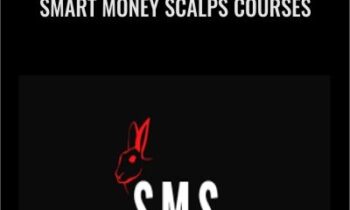Solve Challenging Dementia Behaviors: Support Family Connections and Losses as Root Causes – Edward G. Shaw
Question and Answer
What is you?
you is If are a healthcare professional who works with people living with dementia, you’ve probably thought to yourself…I just can’t understand what’s going on in their brain..
How does you are?
If you are a healthcare professional who works with people living with dementia, you’ve probably thought to yourself…I just can’t understand what’s going on in their brain.
What is this innovative recording,?
this innovative recording, is Through you will gain new skills to transform the way you approach dementia-related behaviors: Manage unmet emotional, relational, and behavioral challenges in people living with dementia Realize new solutions for challenging behaviors, using knowledge of attachment theory, attachment loss, and separation distress as a root cause Gain strategies for embodied, sensory-based mindfulness to use with people living with dementia Facilitate desired emotional love connections and bonds between those with dementia and their caregivers Frustration-ending alternatives to manage agitation, aggression, and other challenging behaviors in dementia – without the use of antipsychotic and other drugs Join dementia expert Edward G. Shaw, MD, MA, nationally known physician, counselor, author, and speaker, for a dynamic recording filled with insightful discussions, interactive learning, and application of practical techniques..
How does this innovative recording, will gain?
Through this innovative recording, you will gain new skills to transform the way you approach dementia-related behaviors: Manage unmet emotional, relational, and behavioral challenges in people living with dementia Realize new solutions for challenging behaviors, using knowledge of attachment theory, attachment loss, and separation distress as a root cause Gain strategies for embodied, sensory-based mindfulness to use with people living with dementia Facilitate desired emotional love connections and bonds between those with dementia and their caregivers Frustration-ending alternatives to manage agitation, aggression, and other challenging behaviors in dementia – without the use of antipsychotic and other drugs Join dementia expert Edward G. Shaw, MD, MA, nationally known physician, counselor, author, and speaker, for a dynamic recording filled with insightful discussions, interactive learning, and application of practical techniques.
What is You?
You is will finish this program feeling confident that you can identify the root cause of challenging behaviors and implement solutions to facilitate emotional connections..
How does You will finish?
You will finish this program feeling confident that you can identify the root cause of challenging behaviors and implement solutions to facilitate emotional connections.
What is Alzheimer’s disease?
Alzheimer’s disease is Differentiate and other forms of dementia using a strengths-based, functional abilities model..
How does Alzheimer’s disease Differentiate?
Differentiate Alzheimer’s disease and other forms of dementia using a strengths-based, functional abilities model.
What is mindfulness interventions and techniques?
mindfulness interventions and techniques is Demonstrate to use for people living with dementia..
How does mindfulness interventions and techniques Demonstrate?
Demonstrate mindfulness interventions and techniques to use for people living with dementia.
What is attachment theory?
attachment theory is Analyze as it relates to people living with dementia, including attachment loss, separation distress, and challenging behaviors..
How does attachment theory Analyze?
Analyze attachment theory as it relates to people living with dementia, including attachment loss, separation distress, and challenging behaviors.
What is the 5 Love Language framework?
the 5 Love Language framework is Evaluate as a “toolkit” to build the emotional love connection with those affected by Alzheimer’s and other dementias..
How does the 5 Love Language framework Evaluate?
Evaluate the 5 Love Language framework as a “toolkit” to build the emotional love connection with those affected by Alzheimer’s and other dementias.
What is strategies?
strategies is Choose non-medication-based to manage challenging behavioral expressions in people living with dementia..
How does strategies Choose non-?
Choose non-medication-based strategies to manage challenging behavioral expressions in people living with dementia.
What is new frustration-ending alternatives?
new frustration-ending alternatives is Determine to manage agitation, aggression, and other challenging behaviors..
How does new frustration-ending alternatives Determine?
Determine new frustration-ending alternatives to manage agitation, aggression, and other challenging behaviors.
What is Challenging Dementia Behaviors:?
Challenging Dementia Behaviors: is Get Solve Support Family Connections and Losses as Root Causes - Edward G. Shaw, Only Price $87 When the Medical Model Doesn’t Work The medical model reimagined focusing on abilities, strengths, and resilience rather than disabilities, weaknesses, and neuropsychiatric symptoms 5 cognitive functions (attention/concentration, memory, executive function, language, visuospatial function) Personality Mood Orientation Alzheimer’s disease and other forms of dementia Transform how you think about and problem-solve common challenges in Alzheimer’s disease and the other dementia types Mindfulness & Dementia Mindfulness reimagined in the setting of dementia How mindfulness affects the autonomic nervous system Associative vs..
How does Challenging Dementia Behaviors: Get Solve?
Get Solve Challenging Dementia Behaviors: Support Family Connections and Losses as Root Causes - Edward G. Shaw, Only Price $87 When the Medical Model Doesn’t Work The medical model reimagined focusing on abilities, strengths, and resilience rather than disabilities, weaknesses, and neuropsychiatric symptoms 5 cognitive functions (attention/concentration, memory, executive function, language, visuospatial function) Personality Mood Orientation Alzheimer’s disease and other forms of dementia Transform how you think about and problem-solve common challenges in Alzheimer’s disease and the other dementia types Mindfulness & Dementia Mindfulness reimagined in the setting of dementia How mindfulness affects the autonomic nervous system Associative vs.
What is dissociative experiences?
dissociative experiences is through the lens of mindfulness Embodied, sensory-based mindfulness strategies to use with people living with dementia Attachment Theory & Dementia Attachment theory reimagined in the setting of older adults Dementia as the ultimate attachment loss Separation distress responses in the person with dementia The seeking response: Agitation, aggression, “going home,” wandering, resisting care The withdrawing response: Depression, apathy, anhedonia Affirm, acknowledge, redirect: A simple, powerful attachment-based approach for challenging behavioral expressions of dementia Strengthening Relationships: The 5 Love Languages and Dementia Love reimagined in the context of dementia 5 Love Languages in practice – physical touch, quality time, words of affirmation, acts of service, and gifts Dementia as an erosion of the “emotional glue” that bonds people together Skills to foster emotional love connections and attachment bonds Get Solve Challenging Dementia Behaviors: Support Family Connections and Losses as Root Causes - Edward G. Shaw, Only Price $87 Tag: Solve Challenging Dementia Behaviors: Support Family Connections and Losses as Root Causes - Edward G. Shaw Review..
How does dissociative experiences use?
dissociative experiences through the lens of mindfulness Embodied, sensory-based mindfulness strategies to use with people living with dementia Attachment Theory & Dementia Attachment theory reimagined in the setting of older adults Dementia as the ultimate attachment loss Separation distress responses in the person with dementia The seeking response: Agitation, aggression, “going home,” wandering, resisting care The withdrawing response: Depression, apathy, anhedonia Affirm, acknowledge, redirect: A simple, powerful attachment-based approach for challenging behavioral expressions of dementia Strengthening Relationships: The 5 Love Languages and Dementia Love reimagined in the context of dementia 5 Love Languages in practice – physical touch, quality time, words of affirmation, acts of service, and gifts Dementia as an erosion of the “emotional glue” that bonds people together Skills to foster emotional love connections and attachment bonds Get Solve Challenging Dementia Behaviors: Support Family Connections and Losses as Root Causes - Edward G. Shaw, Only Price $87 Tag: Solve Challenging Dementia Behaviors: Support Family Connections and Losses as Root Causes - Edward G. Shaw Review.
What is Challenging Dementia Behaviors:?
Challenging Dementia Behaviors: is Solve Support Family Connections and Losses as Root Causes - Edward G. Shaw download..
How does Challenging Dementia Behaviors: Solve?
Solve Challenging Dementia Behaviors: Support Family Connections and Losses as Root Causes - Edward G. Shaw download.
What is Challenging Dementia Behaviors:?
Challenging Dementia Behaviors: is Solve Support Family Connections and Losses as Root Causes - Edward G. Shaw discount..
How does Challenging Dementia Behaviors: Solve?
Solve Challenging Dementia Behaviors: Support Family Connections and Losses as Root Causes - Edward G. Shaw discount.
 Smart Money Scalps Courses – Black Rabbit Trader
1 × $35.00
Smart Money Scalps Courses – Black Rabbit Trader
1 × $35.00 Amazon FBA Coaching Course – Andrei Kreicbergs
1 × $94.00
Amazon FBA Coaching Course – Andrei Kreicbergs
1 × $94.00 3k In 30 Days – Tim Mai
1 × $144.00
3k In 30 Days – Tim Mai
1 × $144.00 Sebastian Ghiorghiu - Shopify Drop Shipping
1 × $66.00
Sebastian Ghiorghiu - Shopify Drop Shipping
1 × $66.00 Dr. Joseph Riggio - Million-Dollar High-Ticket Groups & Programs 2.0
1 × $124.00
Dr. Joseph Riggio - Million-Dollar High-Ticket Groups & Programs 2.0
1 × $124.00 “Email Response Warrior + Email Inbox Warrior” – Jason Henderson
1 × $78.00
“Email Response Warrior + Email Inbox Warrior” – Jason Henderson
1 × $78.00 Alicia Streger - 2016 Edition 52 Weeks of Facebook Content
1 × $38.00
Alicia Streger - 2016 Edition 52 Weeks of Facebook Content
1 × $38.00 Affiliate Marketing Secrets - Iman Shafiei
1 × $91.00
Affiliate Marketing Secrets - Iman Shafiei
1 × $91.00 ONE Flip - 8 Figure Investor - Josh Cantwell
1 × $100.00
ONE Flip - 8 Figure Investor - Josh Cantwell
1 × $100.00 SEO That Works 4.0 (2021) - Brian Dean
1 × $73.00
SEO That Works 4.0 (2021) - Brian Dean
1 × $73.00 10th Planet Jiu-jitsu All Stars
1 × $27.00
10th Planet Jiu-jitsu All Stars
1 × $27.00 5 Proven Ecommerce Scaling Tactics
1 × $49.00
5 Proven Ecommerce Scaling Tactics
1 × $49.00 100 Days to $100k – PPL Army
100 Days to $100k – PPL Army
 2013 MozCon Video Bundle - SEOmoz
2013 MozCon Video Bundle - SEOmoz
 2017 GrowthHackers Conference Virtual Pass - Growth Hackers
2017 GrowthHackers Conference Virtual Pass - Growth Hackers
 Smart Money Scalps Courses – Black Rabbit Trader
Smart Money Scalps Courses – Black Rabbit Trader  Amazon FBA Coaching Course – Andrei Kreicbergs
Amazon FBA Coaching Course – Andrei Kreicbergs  Sebastian Ghiorghiu - Shopify Drop Shipping
Sebastian Ghiorghiu - Shopify Drop Shipping  Dr. Joseph Riggio - Million-Dollar High-Ticket Groups & Programs 2.0
Dr. Joseph Riggio - Million-Dollar High-Ticket Groups & Programs 2.0  Alicia Streger - 2016 Edition 52 Weeks of Facebook Content
Alicia Streger - 2016 Edition 52 Weeks of Facebook Content  SEO That Works 4.0 (2021) - Brian Dean
SEO That Works 4.0 (2021) - Brian Dean 